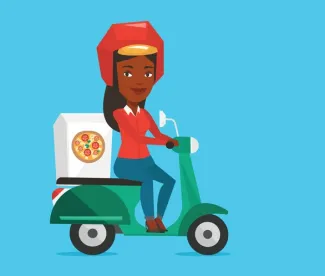Reports of restaurants adding a “COVID surcharge” have become widespread during the pandemic. In recent months, cities and states across the nation have implemented a number of measures designed to help struggling restaurants adapt to the new normal. These include allowing restaurants to implement a “surcharge,” as well as capping fees that third-party delivery services can charge restaurants. However, while “surcharges” may be more benign than direct price increases, a recent California price gouging lawsuit demonstrates that restaurants still need to be vigilant in their compliance with state price gouging laws.
In an effort to help struggling restaurants, Cleveland has become the latest city to implement a cap on the amount of fees that third-party food delivery services may charge restaurants. The limitation, passed on December 15, caps third-party delivery fees at 15% of the order. Similarly, Chicago implemented a ban in November, prohibiting third-party food delivery services from charging a delivery fee that is greater than 10% of the order price. Washington Governor Jay Inselee also signed a proclamation in November, capping third-party delivery fees at 15%, and total fees at 18% of the purchase price. Prior to these caps , Los Angeles and Portland implemented similar restrictions.
While some places are implementing food delivery caps, other cities, like New York City, have taken a different approach to helping restaurants during the pandemic, by passing legislation to allow restaurants to add surcharges. In September, the city imposed a temporary “COVID-19 recovery charge” that allows restaurants to add up to 10% to in-person dining bills. According to the bill’s sponsor, “New York was actually the only city that we knew of that actually had a ban . . . [that] prevent[ed] restaurants . . . from applying a surcharge.”
However, the majority of states have not explicitly authorized restaurant surcharges like New York City, and this may create legal uncertainty about their use in those jurisdictions. As we reported, a class action lawsuit was recently brought in California against a restaurant group accused of unjustifiably charging a 10% or 15% so-called ‘service or packaging fee’ for takeout orders. Like most states with price gouging laws on the books, California’s price gouging law applies to consumer food items. Barring any defenses or justifications, such “surcharges” possible could be construed as price increases in contravention of price gouging restrictions if the surcharge exceeds the allowable price increase under the statute.
With indoor dining season underway at significantly reduced capacities, many are hopeful that the coming months will bring additional legislation and measures as cities seek to keep their restaurants afloat. In the meantime, restaurants should be aware of the relevant state price gouging restrictions in the jurisdictions in which they operate when considering whether to implement a surcharge.







 />i
/>i
